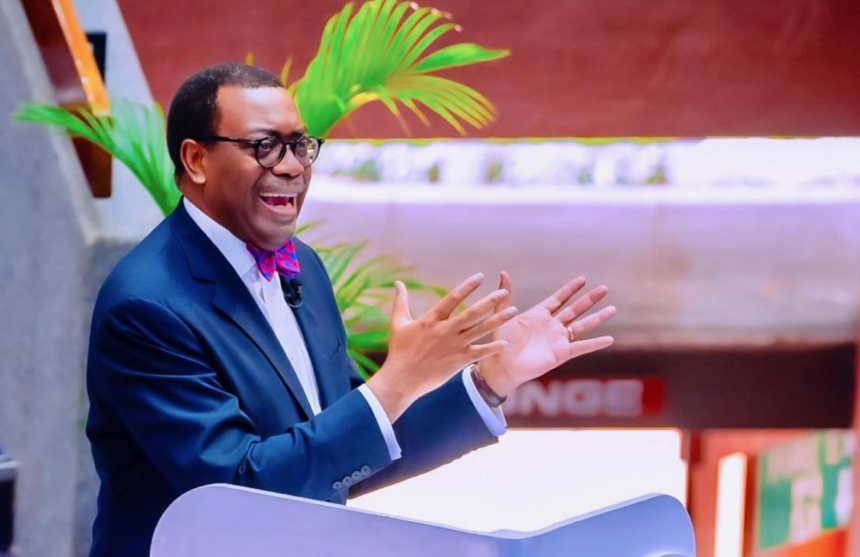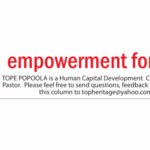THE African Development Bank (AfDB) has launched a new five-year Country Strategy Paper (CSP) for Nigeria, marking a significant commitment to support the country’s development priorities amid concerns about the historical inconsistency in national planning.
The strategy, covering 2025 to 2030, outlines a robust plan to channel approximately $2.95 billion over the first four years, with an average annual investment of $650 million. The Bank also projects an additional $3.21 billion in co-financing from development partners, reflecting renewed international confidence in Nigeria’s economic potential.
This strategy comes after a series of six national development plans, spanning multiple administrations since 1999, that analysts say have largely fallen short of their goals.
Despite being well-articulated, none of these plans achieved up to 90 percent of their targets, according to national statistics and policy experts. This legacy of policy discontinuity and poor implementation has raised questions about Nigeria’s capacity to follow through on long-term development blueprints.
The newly launched CSP seeks to break that cycle by aligning closely with Nigeria’s existing frameworks such as the National Development Plan (2021-2025), the Agenda 2050 vision, and the Tinubu administration’s “Renewed Hope Agenda.” The strategy focuses on critical areas including infrastructure development, job creation, social inclusion, climate resilience, and regional trade integration through the African Continental Free Trade Area (AfCFTA).
According to the AfDB, Nigeria faces an estimated infrastructure funding gap of $2.3 trillion between 2020 and 2043. The Bank believes its funding and support can significantly narrow this gap, especially by crowding in private investment and development partner resources.
With a focus on sectors such as transport, power, agriculture, water, education, and health, the CSP promises to deliver real impact on the ground—if implemented effectively.
AfDB Country Manager for Nigeria, Lamin Barrow, said the new strategy is designed not only to address Nigeria’s immediate development challenges but to foster structural transformation and inclusive growth.
“The strategy is a product of comprehensive consultations with stakeholders across public and private sectors. It aims to accelerate economic diversification, enhance human capital development, and strengthen financial sector resilience,” Barrow noted during the CSP unveiling ceremony.
President Bola Tinubu’s campaign manifesto—rooted in the ambition of building a self-sufficient, just, and prosperous Nigeria—offers a national vision that resonates with the AfDB’s strategy.
His “Renewed Hope Agenda” calls for a Nigeria that is transformed into a global economic powerhouse and the pride of Africa. He envisions a democratic nation with an industrial base capable of producing basic needs and exporting surplus, where prosperity is broadly shared regardless of class, region, or religion.
Tinubu’s goals also include ensuring every Nigerian has access to food, shelter, healthcare, and primary education, while living in a safe and secure environment.
These ideals, while lofty, now face the real test of execution—something previous administrations have struggled with.
For context, the country’s track record of development plans paints a sobering picture:
Read Also: Oladoja vows to revamp NANS
Olusegun Obasanjo (1999-2007): Vision 20:2020 aimed to place Nigeria among the world’s top 20 economies by 2020, with a GDP target of $900 billion and per capita income of $4,000. The plan fell short by a wide margin.
Umaru Musa Yar’Adua (2007-2010): Introduced the 7-Point Agenda focused on energy, education, and fiscal reforms, but his short tenure and health issues hindered progress.
Goodluck Jonathan (2010-2015): Rolled out the Transformation Agenda (2011-2015), focusing on governance, infrastructure, and human capital. Though ambitious, the plan lacked continuity after his administration.
Muhammadu Buhari (2015-2023): Oversaw multiple plans, including the Economic Recovery & Growth Plan (2017-2020), the Nigeria Economic Sustainability Plan (2020), and the National Development Plan (2021-2025). Many goals remained unmet due to economic shocks, oil price volatility, and security challenges.
In 2023, Buhari’s administration introduced Agenda 2050, a long-term blueprint aimed at lifting millions out of poverty and positioning Nigeria as a global economic player. However, the plan’s success now rests in the hands of subsequent governments.
Speaking on a TV program, Wilson Erumebor, an economist with the Nigerian Economic Summit Group, pointed to a key reason behind Nigeria’s lack of development success: inconsistency. “Every administration wants its own plan. When a new government comes in, it often discards existing frameworks and starts afresh. That lack of continuity is a major roadblock,” Erumebor explained.
He added that while flexibility is necessary to adapt national plans to new political realities, long-term consistency is essential. “These plans are not part of the constitution. They’re not law. But they are national aspirations. We must treat them as binding visions if we are serious about development.”
As Nigeria embraces yet another strategic plan—with high hopes and significant funding—the real question remains: will this time be different? With a clear roadmap, strong international backing, and alignment with national priorities, the AfDB’s Country Strategy Paper could be a turning point. But its success hinges on something Nigeria has long struggled to master—implementation. Analysts wonder if Nigeria will finally break the cycle of unfulfilled plans and build a future that matches its potential. Only time will tell.
WATCH TOP VIDEOS FROM NIGERIAN TRIBUNE TV
- Let’s Talk About SELF-AWARENESS
- Is Your Confidence Mistaken for Pride? Let’s talk about it
- Is Etiquette About Perfection…Or Just Not Being Rude?
- Top Psychologist Reveal 3 Signs You’re Struggling With Imposter Syndrome
- Do You Pick Up Work-Related Calls at Midnight or Never? Let’s Talk About Boundaries






